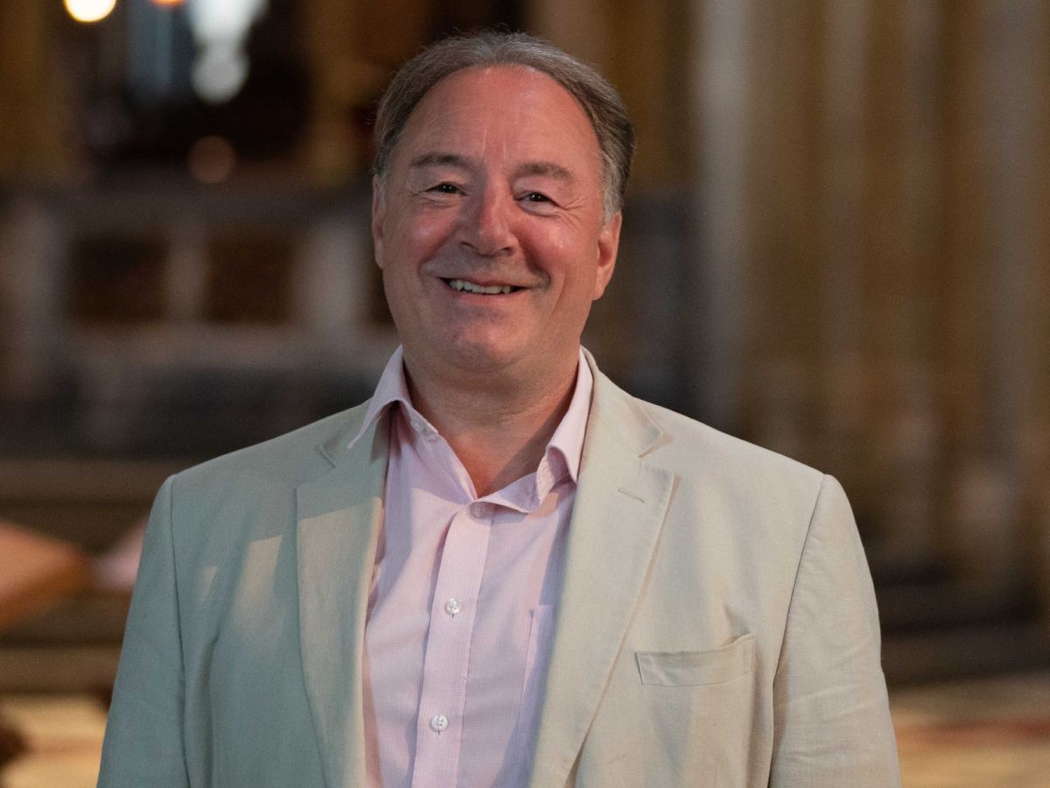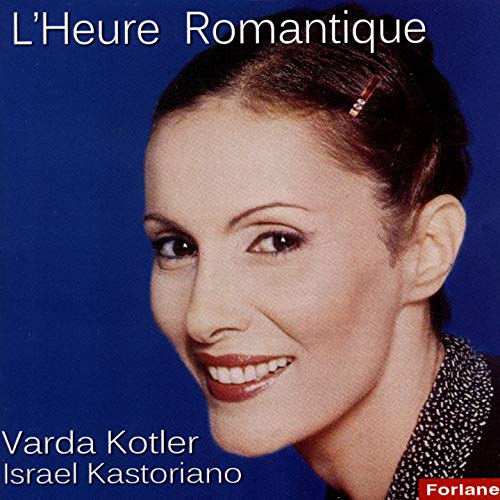- Guillaume Tell
- phenomenology
- Nicholas Snowman
- André Jolivet
- April Fools Day
- Puccini: Il tabarro
- Giulia Bolcato
- Riho Esko Maimets
Ian Venables at Seventy
The British composer celebrates with at least twenty-five performances on both sides of the Atlantic
British composer Ian Venables celebrates his seventieth birthday in July this year, with first performances, a new recording and no fewer than twenty-five concerts and recitals on both sides of the Atlantic.
He is the featured composer at the 2025 Elgar Festival (24 May-1 June, Worcestershire, UK), and where a new documentary Ian Venables: Hidden Music will be first shown. The year culminates in a celebration at the Temple Church in London featuring two of Venables' major song cycles performed by soloists Kitty Whately, Alessandro Fisher, Gareth Brynmor John and William Vann.

Ian Venables. Photo © Michael Whitefoot
Ian Venables was born in Liverpool in 1955, and educated at Liverpool Collegiate Grammar School. He studied music with Richard Arnell at Trinity College of Music in London and later with Andrew Downes, John Mayer and John Joubert at Birmingham Conservatoire. While Venables acknowledges the influence and inspiration of Shostakovich, Vaughan Williams, Howells, Samuel Barber and his teacher Richard Arnell, his voice remains distinctly his own. Since 1986, he has made his home in Worcester, UK, and the surrounding countryside of Worcestershire and the Malvern Hills has often inspired his compositions, although he is equally drawn to the classical world: the landscapes of ancient Greece and the sensual dreamlike impressionism of Venice, 'The Floating City'.
Venables is well known for his songs, and has written over ninety works in the genre, including twelve song cycles. His recent Ralph Vaughan Williams Society commission, Portraits of a Mind, has been recorded on Albion Records and was shortlisted for a Gramophone Award.
In addition to his String Quartet, hailed by Simon Heffer as 'a masterpiece', Venables' many chamber works include a Piano Quintet, which has been championed by British pianist Mark Bebbington and recorded on the SOMM label.
Venables has, in recent years, begun to write a raft of choral works that include a Requiem, praised by Andrew McGregor as 'a modern classic' and first recorded for the SOMM label by Gloucester Cathedral Choir and organist Jonathan Hope, directed by Adrian Partington. The subsequent orchestral arrangement was rapturously received at the 2024 Three Choirs Festival, again under Partington's baton, and performed by the Philharmonia Orchestra and Festival Youth Choir. To this growing body of choral music can now be added: a setting of Psalm 67 for strings and organ, recorded, along with the Requiem (in the orchestral version), on the Delphian label and performed by Merton College Choir, Oxford and Oxford Contemporary Sinfonia under the direction of Benjamin Nicholas; a Magnificat and Nunc Dimittis; an a cappella Christmas carol Sleep, Baby Sleep; a set of Versicles and Responses and an anthem The Song of Solomon for SATB and organ.
Sealing his reputation, Venables' work has been championed by nationally and internationally acclaimed artists on both sides of the Atlantic, including Roderick Williams, Allan Clayton, Brian Thorsett, Sarah Connolly, Mary Bevan, James Gilchrist, Alessandro Fisher, Andrew Kennedy, Mark Bebbington, Graham J Lloyd, Iain Burnside, Simon Lepper and Sholto Kynoch. He has enjoyed outstanding reviews for a string of admired recordings on leading record labels including SOMM, Signum, Delphian, Regent, EM, Albion and Naxos. His work is published by Novello and Company Ltd (Wise Music International).
He describes Art Song as 'a composer's music, in complete accord with the poet's intentions'. For him, Gurney and Finzi provided 'the way in, after which I never looked back', he explains. The poem is the inspiration, and the objective is 'to distil its essence in musical form and hopefully illuminate the inner vision of the poet'.
As well as setting contemporary poets Andrew Motion, Jonathan Davidson and Charles Bennett, Venables has principally focused on nineteenth and early twentieth century poets including John Clare, Tennyson, Graves, Hardy, Whitman, Edward Thomas, Housman, Robert Frost and John Addington Symonds (on whom he is an acknowledged authority), and more recently, the war poets, Wilfred Owen, Isaac Rosenberg and Siegfried Sassoon in works that, as the composer explains, 'touch upon the universality of loss, love and personal identity ... and bring it within the compass of personal experience'.
Further information: ianvenables.com
Posted 26 March 2025 by Keith Bramich





